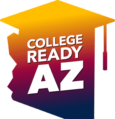Understanding loans
Student loans can be a helpful tool to finance your education and achieve your career goals.
You need to understand what you’re signing up for and how it can impact your future when it’s time for repayment.
It’s important to consider things like loan servicing fees, interest rates and available repayment plans. Remember that loans will need to be repaid within a predetermined time frame whether that is your graduation, departure from college or a reduction in enrollment to less than half-time status.
Before accepting or applying for any loan, it’s imperative to first look for scholarships, grants and employment opportunities.
Federal need-based loans
Need-based loans are only awarded to students with qualifying financial need determined by submitting the FAFSA. The loans will be included in your financial aid offer from the colleges where you are admitted. These loans typically have the lowest interest rates.
Direct Subsidized Loans
Direct Subsidized Loans are need-based loans that do not charge interest while you’re in college and have a borrowing limit that increases for each year of school completed.
Federal non-need based loans
Non-need based loans do not take financial need into consideration, but you will still need to complete the FAFSA to be awarded these loans and have the offer in your financial aid package.
Direct Unsubsidized Loans
Direct Unsubsidized Loans begin charging interest as soon as the loan is dispersed (while you’re in school). You can add the interest fees to the amount you borrow until after graduation, but this means you’ll actually end up owing more in the end.
Parent PLUS and Grad PLUS loans
Parent PLUS and Grad PLUS loans are credit-based loans that require a credit check to determine eligibility. These typically have higher interest rates than other federal loans and should be considered after all other federal loan options are exhausted.
Private or alternative loans
Private loans are provided by private lenders, such as banks, credit unions and online financial institutions. Unlike federal loans, which are funded and regulated by the government, private loans are offered by individual financial institutions and are subject to the terms and conditions set by the lender. You’ll need to apply directly through the lender.
ELMSelect
ELMSelect is a recommended tool to research which private loan is a good fit for you. You can view, filter and compare private student loan options available for a specific school.
Institutional loans
Institutional loans are offered directly by colleges or universities to help cover educational expenses. Not all institutions offer loans, but those that do are typically provided by the school’s financial aid office and can be part of an overall financial aid package. As with other loan options, make sure you understand the terms, repayment obligations and the impact it will have on your overall financial situation.
Check with the financial aid office of the schools you are interested in to see if this option is available.
